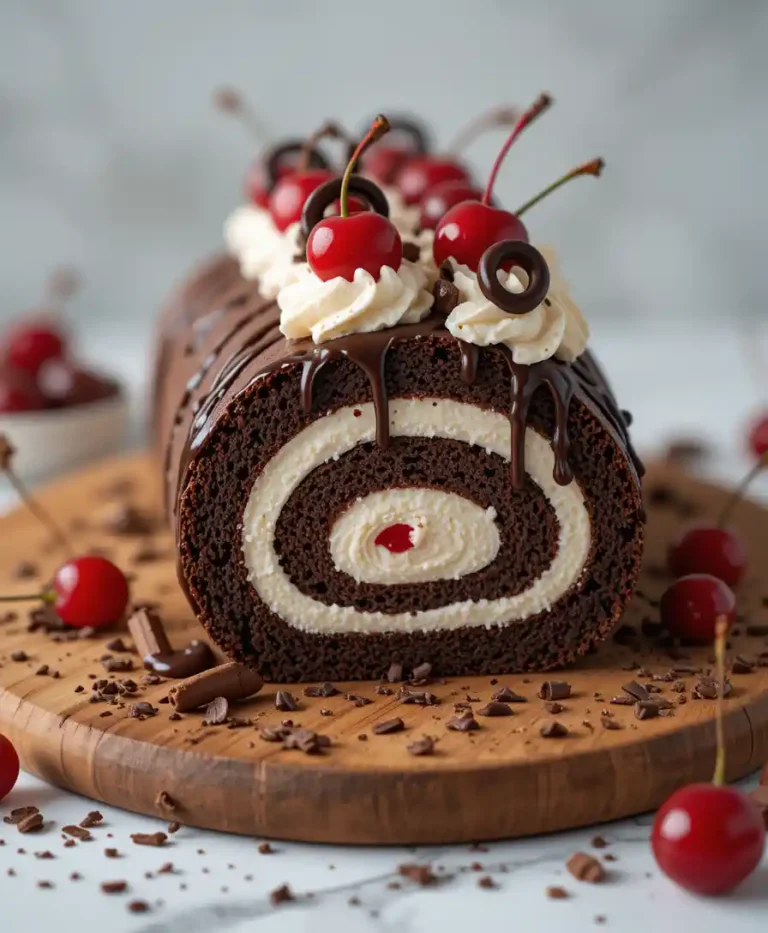Concentrated Lemon Juice
Concentrated lemon juice is a kitchen game-changer that more folks should know about. Whether you’re a busy home cook, a cocktail enthusiast, or just someone who loves that fresh, tangy zing, this handy ingredient can save you time and add a burst of flavor when you least expect it. But what exactly is concentrated lemon juice, and how can you make the most out of it in your daily routine?
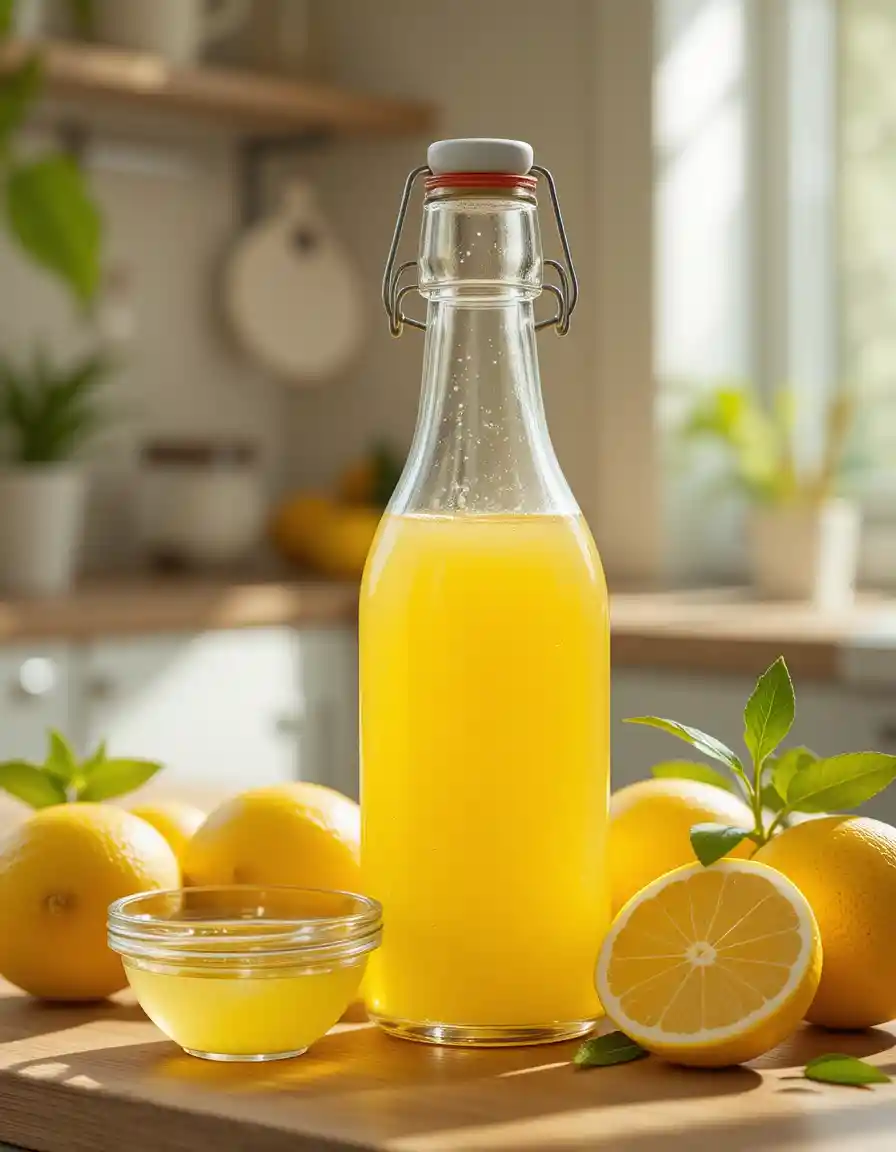
Stick around as we dive into everything you need to know — from the benefits and clever uses to simple tips on buying or even making your concentrate at home. Trust me, once you get the hang of it, you’ll wonder how you ever cooked without it! Keep reading to discover all the juicy details and unlock the full potential of concentrated lemon juice in your kitchen.
Table of Contents
What is Concentrated Lemon Juice?
So, what exactly is concentrated lemon juice? Simply put, it’s lemon juice that’s been processed to remove most of its water content, leaving behind a more potent, tangy liquid packed with all the lemony goodness. This makes it super convenient because you get a stronger flavor in a smaller bottle — no need to squeeze dozens of lemons!
You’ll find concentrated lemon juice sold in two main forms: liquid concentrate (usually in bottles or cans) and powdered concentrate (which is dried and turned into a powder). Both work great, depending on what you need, whether it’s cooking, mixing drinks, or even cleaning around the house.
Essentially, concentrated lemon juice provides the same punch as fresh lemons, but with a longer shelf life and significantly less hassle — perfect for when fresh lemons are out of season or simply not readily available.
Top Trending Recipes
Why Use Concentrated Lemon Juice? Benefits & Advantages
You might be thinking, “Why bother with concentrated lemon juice when fresh lemons are just a quick squeeze away?” Well, here’s the scoop — concentrated lemon juice brings plenty of perks that make it a real kitchen MVP.
- Convenience on Point: No need to fuss with squeezing, pits, or seeds. Just pop open the bottle and you’re good to go. It’s especially clutch when you’re in a rush or low on fresh lemons.
- Longer Shelf Life: Unlike fresh lemons that can turn soft and bitter after a few days, concentrated lemon juice keeps for months when refrigerated. So, you won’t be tossing out half-used lemons anymore.
- Consistent Flavor: Fresh lemons can vary in taste depending on season or origin, but concentrate gives you that reliable, zesty punch every single time. No surprises, just pure lemony goodness.
- Versatility: From drizzling on fish to mixing zesty cocktails, baking tangy desserts, or even cleaning your kitchen counters, concentrated lemon juice pulls double (or triple) duty.
- Cost-Effective: Buying lemons all the time can add up, especially if you only need juice here and there. Concentrate saves money and cuts waste since you use exactly what you need.
So yeah, concentrated lemon juice isn’t just a backup plan — it’s a legit, go-to ingredient that’ll save your bacon and add zing whenever you need it.
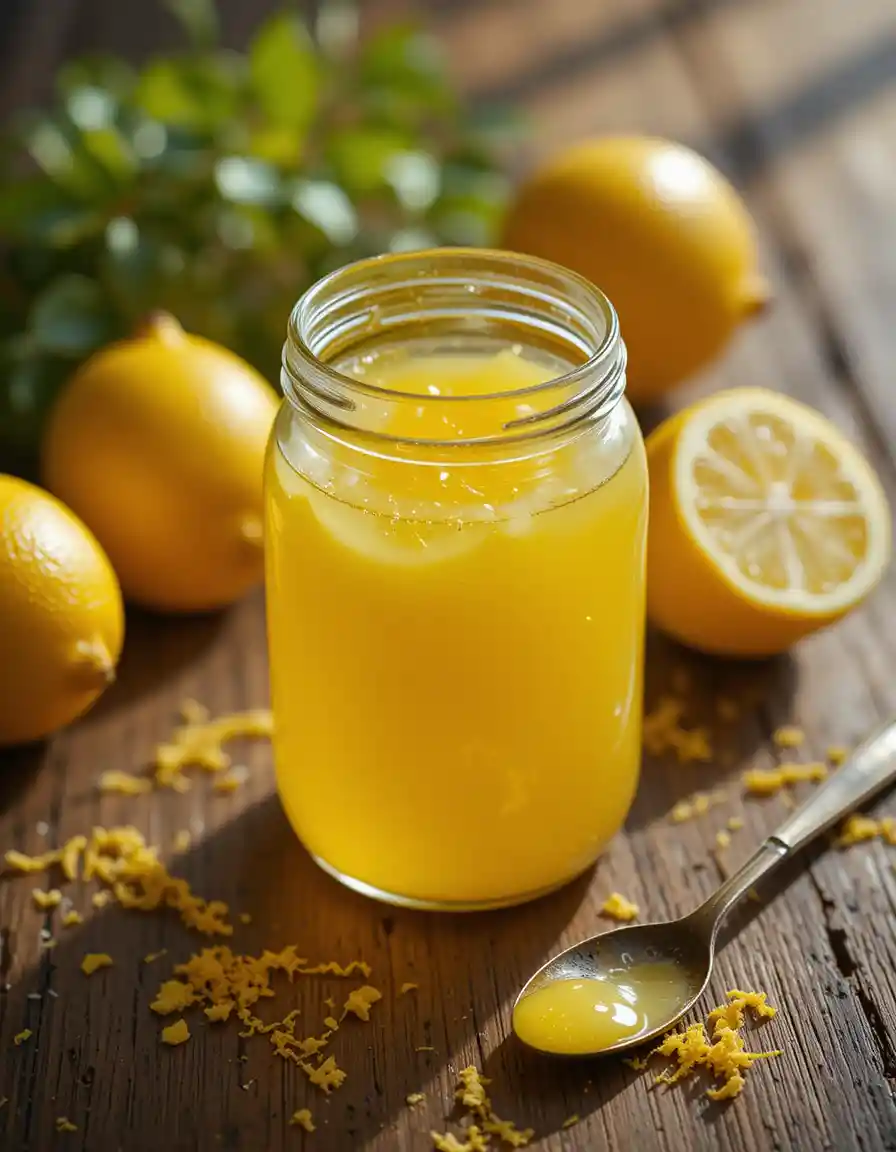
How to Use Concentrated Lemon Juice
Alright, now that you know the perks, let’s get down to business: how to use concentrated lemon juice like a pro. Whether you’re cooking up a storm or just adding a splash of tang, this stuff is super versatile — and here’s how to make the most of it:
- In the Kitchen: Use it to brighten up salad dressings, marinades, and sauces. Just a teaspoon or two can add a fresh, zesty kick without the hassle of peeling and squeezing lemons. It’s perfect for fish dishes, chicken recipes, or even drizzling over roasted veggies.
- In Drinks: From homemade lemonade to cocktails like a classic whiskey sour, concentrated lemon juice gives your drinks that authentic zing. Remember, it’s strong stuff — start with a little and adjust to taste.
- Baking & Desserts: Lemon lovers, rejoice! Add concentrated lemon juice to cakes, muffins, or frostings for that perfect citrus punch. It’s a neat shortcut when fresh lemon juice isn’t in the fridge.
- Household Hacks: Beyond the kitchen, diluted lemon juice works wonders as a natural cleaner. Use it to freshen up cutting boards, wipe down counters, or even tackle hard water stains.
- Dos and Don’ts: Since it’s more potent than fresh juice, don’t go pouring it straight from the bottle without checking the recipe or taste-testing first. Dilute if needed, and always store it chilled once opened to keep it fresh.
With these easy tips, you’ll be squeezing every drop of goodness from your concentrated lemon juice — no lemons required!
Trending Recipes Now
Nutritional Info & Health Benefits
You might be surprised, but concentrated lemon juice still packs a decent nutritional punch — even after processing. While it’s not quite as nutrient-rich as freshly squeezed juice, it still brings some valuable health perks to the table.
Nutritional Highlights (per 1 tablespoon, approx.):
- Calories: 4–6 kcal
- Carbs: 1–2 grams
- Sugars: <1 gram (check the label — some brands add sugar!)
- Vitamin C: ~10–15% of the daily recommended intake
- No fat, no protein, and almost zero sodium
It’s low in calories, sugar, and carbs, which makes it a smart, flavorful addition to your meals or drinks without messing up your diet.
Health Benefits:
- Immune Support: Thanks to its Vitamin C content, concentrated lemon juice can help give your immune system a little boost, especially handy during cold season.
- Digestion Aid: Adding a splash to warm water in the morning is an old-school trick folks use to get digestion moving. Some even say it helps with bloating and acid balance.
- Detox & Hydration: While “detox” claims can be overhyped, lemon juice does encourage you to drink more water, and that alone helps your body function better.
- Antioxidant Properties: Lemons contain flavonoids — natural compounds that may help fight inflammation and oxidative stress.
Heads up: Some store-bought concentrates can contain preservatives or added sugars, so always peek at the label before you pour. Go for 100% lemon juice if possible.
In short, concentrated lemon juice won’t replace a fresh salad or a vitamin-packed smoothie, but it’s a neat little helper when you want flavor and a few benefits in one shot.
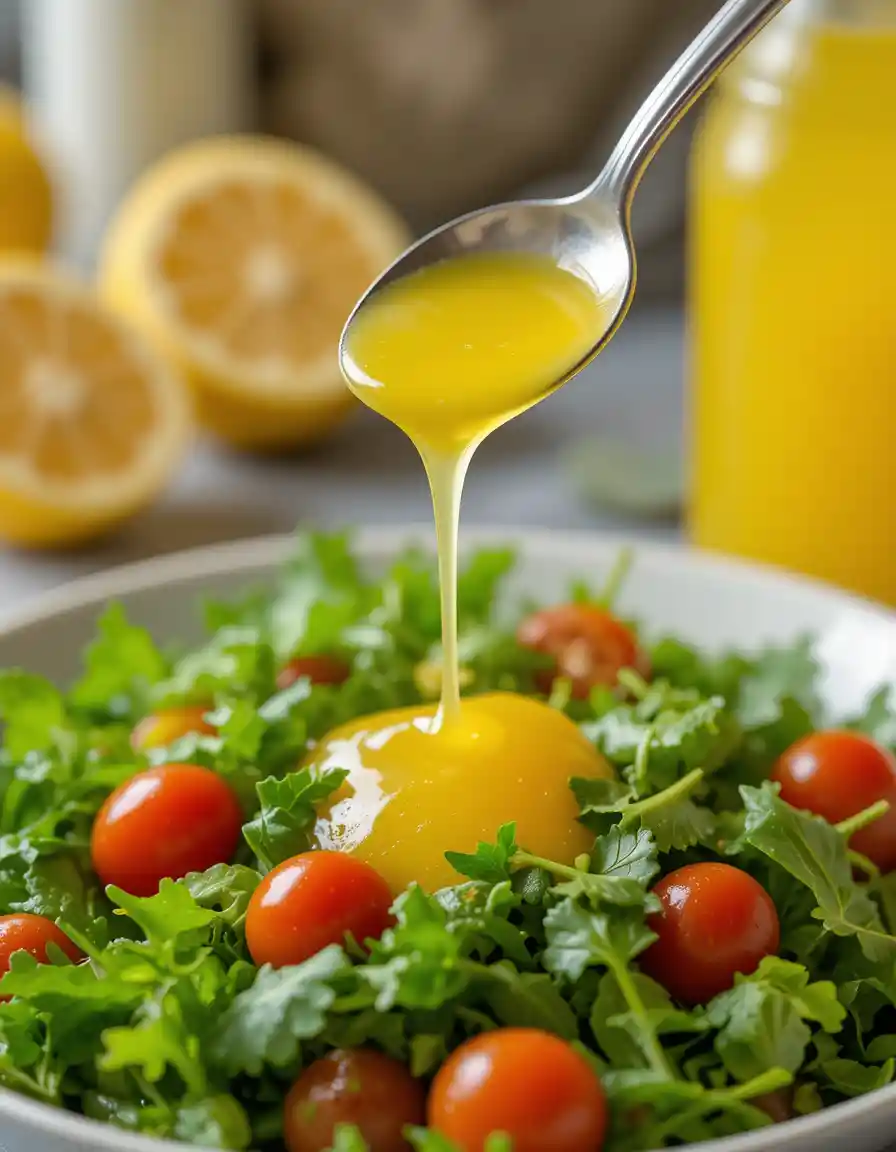
Where to Buy Concentrated Lemon Juice & What to Look For
You don’t have to go on a wild goose chase to find concentrated lemon juice — it’s available in most grocery stores, local markets, and online shops. But not all bottles are created equal, so here’s how to shop smart and avoid getting stuck with a lemon… in the bad way.
Where to Find It:
- Supermarkets: Look in the condiment aisle or near vinegars and bottled sauces. Some stores also place it in the juice or natural products section.
- Local Markets: Some bulk stores or local grocers may carry lemon concentrate in larger containers — great if you use it often.
- Online: Amazon, Walmart, Thrive Market, and other retailers usually stock a wide variety of brands and sizes. Just make sure to check the ingredients before clicking “buy.”
What to Look For on the Label:
- 100% Lemon Juice: The fewer the ingredients, the better. Ideally, it should say “from concentrate” but still be pure lemon juice — no added sugar or weird fillers.
- No Preservatives or Additives: Watch out for things like sodium benzoate or potassium metabisulfite. They help shelf life, but aren’t everyone’s cup of tea.
- No Added Sweeteners: Some brands sneak in sugar or corn syrup, which can totally throw off the flavor in savory recipes.
- Expiration Date: Especially if you’re buying in bulk, check how long it lasts once opened (usually a few months if refrigerated).
Pro Tip:
Don’t get fooled by “lemon-flavored” products — those are usually watered down or artificially flavored.
So whether you’re picking up a bottle on your weekly shop or ordering a stash online, choosing the right concentrated lemon juice makes all the difference in flavor and quality.
The Latest Recipes
Chocolate Swiss Roll Cake
Chocolate Ding Dong Cake
DIY: Making Your Concentrated Lemon Juice at Home
Why buy it when you can make your concentrated lemon juice at home — no weird preservatives, no added sugar, and a whole lotta flavor? If you’ve got a bunch of lemons hanging out in your kitchen, this little trick turns them into liquid gold.
Here’s How We Roll (Moroccan-style simplicity meets kitchen smarts):
- Squeeze like you mean it. Grab a bowl, a juicer (or just your hands if you’re old-school), and juice about 8–10 fresh lemons. Tip: Roll them on the counter first to get the most out of ‘em — like we do back home.
- Strain the drama. Run the juice through a fine mesh strainer or cheesecloth to ditch the pulp and seeds. You want smooth, clean juice — no chunky bits here.
- Now comes the magic — reduce it! Pour the juice into a saucepan and set it over low heat. Let it simmer (not boil) slowly. Stir every now and then and let it reduce by about half. This step concentrates the flavor naturally — it’s like cooking down a tajine, slow and steady.
- Cool it. Bottle it. Once thickened and bold-smelling, let it cool completely. Then pour it into a clean glass bottle or jar. Boom — you’ve got homemade concentrated lemon juice!
Storage Tips:
- Or freeze it in ice cube trays — perfect little portions for future recipes, drinks, or cleaning hacks.
Pro Tips from the Couscous Corner:
- Add a bit of lemon zest during simmering for an extra citrus kick — just strain it again before bottling.
- Wanna give it a Moroccan twist? Add a pinch of salt to enhance the flavor — works great if you’re using it in savory dishes.
Homemade concentrate has that punchy, no-nonsense flavor that store-bought just can’t beat. And honestly? It feels good knowing exactly what’s in your bottle. Try it once, and you might never go back to the shelf stuff again.
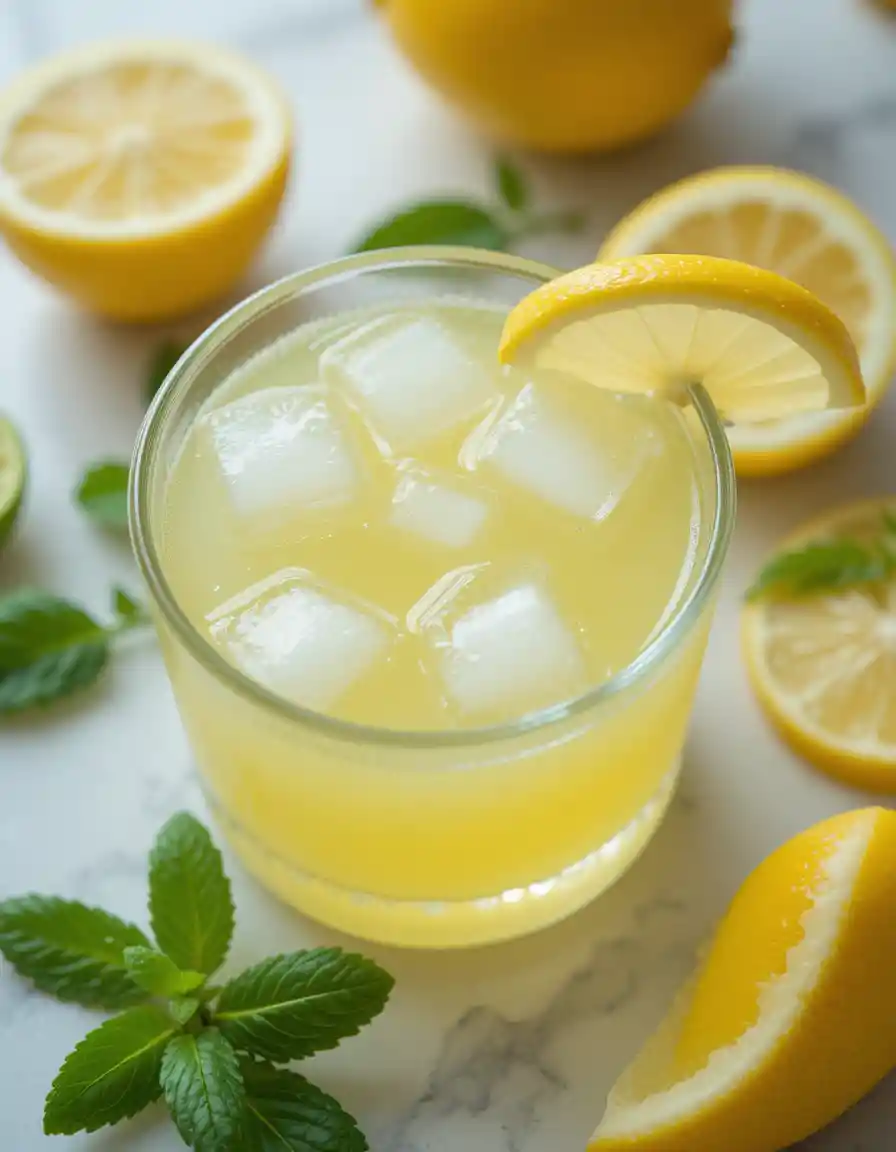
Common Mistakes & How to Avoid Them
Even though concentrated lemon juice seems like a no-brainer, there are a few classic slip-ups that can throw off your recipe, drink, or cleaning routine. Let’s break them down — so you don’t get caught off guard:
Using it like it’s fresh lemon juice (1:1 swap)
Why it’s a problem: Concentrated lemon juice is, well… concentrated! It’s way stronger in flavor and acidity.
How to fix it: Start small — usually ½ to ¾ teaspoon of concentrate equals 1 tablespoon of fresh lemon juice. Taste as you go. You can always add more, but you can’t take it out once it’s in!
Skipping the label check
Why it’s a problem: Some brands sneak in added sugar, preservatives, or artificial flavors. That’s fine for some uses, but a disaster if you’re trying to keep it clean or use it in savory dishes.
How to fix it: Look for 100% lemon juice from concentrate, with no weird extras. If the ingredients list looks like a chemistry exam, back away slowly.
Letting it sit out
Why it’s a problem: Concentrated lemon juice is shelf-stable until opened. Once you break the seal, it needs to be refrigerated — or it’ll go funky fast.
How to fix it: Store it in the fridge in a tightly sealed bottle or jar. And if you make it homemade, use it within 2–3 weeks, or freeze it.
Overdoing it on drinks
Why it’s a problem: A little too much, and suddenly your lemonade tastes like lemon cleaner — yikes.
How to fix it: For drinks, try ½ teaspoon per cup of water, then adjust. Add honey, mint, or ginger to smooth out the tartness.
Using plastic containers for storage
Why it’s a problem: Lemon juice is acidic, and it can react with plastic or absorb funky flavors.
How to fix it: Use glass jars or bottles whenever possible, especially for homemade concentrate. It keeps the flavor pure and the quality high.
These little tips might seem basic, but they can save your dish (and your face) from a too-sour surprise. Concentrated lemon juice is a handy helper — but like any strong ingredient, it needs a gentle hand.
Top Trending Recipes
Final Thoughts: Why I Keep a Bottle in My Kitchen
I’ll be honest — I didn’t always keep concentrated lemon juice on hand. I used to rely only on fresh lemons, thinking that was the only “real” way. But once I gave this little shortcut a proper try (especially on a busy weeknight when dinner had to be done fast), I was hooked. The flavor, the convenience, the versatility — it just makes life in the kitchen that much smoother.
Whether you’re cooking, cleaning, baking, or whipping up a refreshing drink, concentrated lemon juice truly earns its spot on the shelf. And the best part? You can even make it yourself and skip all the additives.
Thanks so much for sticking with me through this guide — I hope it gave you some useful tips, new ideas, and maybe even a little motivation to give concentrated lemon juice a shot in your own cooking adventures.
If you found this helpful, don’t forget to check out my other articles — I’ve got plenty more recipes, kitchen hacks, and flavor-packed ideas waiting for you.
Related Recipes You Will Love
Nutritional Information & Recipe Summary
- Preparation Time: 10 minutes
- Cooking Time: 20 minutes (for reducing juice)
- Total Time: 30 minutes
- Type: Homemade Concentrated Lemon Juice
- Cuisine: Universal / Global
- Recipe Yield: About ½ cup (120 ml) concentrate (from 8–10 lemons)
- Calories: Approximately 4–6 kcal per tablespoon

Homemade Concentrated Lemon Juice
Ingredients
Equipment
Method
- Prep your lemons like a boss. Give each lemon a good roll on the counter — think of it as waking them up from their citrus nap. This trick loosens the juice inside so you squeeze every drop without a fight.
- Slice and squeeze. Cut those lemons right down the middle, then use your favorite juicer or your bare hands if you’re feeling tough. Juice into a bowl, but watch out for those pesky seeds trying to hitch a ride.
- Simmer low and slow. Pour the juice into a small saucepan, turn your burner to low, and let the magic happen. This is where your juice gently thickens and reduces by half, intensifying that bright lemon flavor. Stir occasionally, but no rushing — patience is key here.
- Cool it down. Once your juice has shrunk and thickened, take the pan off the heat and let it cool naturally. No rushing this part — the flavor needs time to settle.
- Bottle it up. Pour your thickened, zingy concentrate into a clean glass jar or bottle. Screw on the lid tight to keep the freshness locked in.
- Keep it fresh. Store your homemade lemon concentrate in the fridge. Use it up within 2-3 weeks, or freeze small portions in ice cube trays so you can grab a burst of lemon power whenever you want.
Notes
- For the best flavor, use ripe, juicy lemons — they’ll give you more juice and a sweeter, brighter taste.
- Avoid boiling the juice; a gentle simmer preserves the fresh lemon aroma and prevents bitterness.
- If you want a thicker concentrate, simmer it a bit longer, but keep an eye so it doesn’t burn.
- Adding a pinch of salt can enhance the flavor if you plan to use the concentrate in savory dishes.
- Store your concentrate in a clean glass container to keep it fresh longer and prevent any plastic aftertaste.
- Freeze leftover concentrate in ice cube trays for convenient, ready-to-use portions.
- Use within 2–3 weeks if refrigerated, or up to 3 months if frozen.
FAQs About Concentrated Lemon Juice
Still got questions? You’re not alone! Here are some of the most searched and useful answers about concentrated lemon juice to help you get the most out of it in your kitchen and beyond.
❓Can I use concentrated lemon juice instead of fresh lemon juice in recipes?
Yes — but with caution. Since concentrated lemon juice is more intense than fresh, start with about ½ to ¾ teaspoon for every tablespoon of fresh juice. Adjust to taste, especially in delicate recipes like salad dressings or baked goods.
❓Is concentrated lemon juice good for you?
In moderation, yes. It contains vitamin C and antioxidants, though less than fresh lemons. It’s great for adding flavor without extra calories, but check the label for added sugars or preservatives.
❓How do I make concentrated lemon juice at home?
To make homemade concentrated lemon juice, simmer freshly squeezed lemon juice on low heat until it reduces by half. Strain, cool, and store in a glass jar.
❓What is concentrated lemon juice used for?
It’s super versatile! Use it in cooking, baking, cocktails, detox drinks, salad dressings, or even as a natural household cleaner.
❓Can I drink lemon water made with concentrated lemon juice?
Absolutely! Just dilute it well — about ½ teaspoon in a cup of water, and you’ve got yourself a quick lemon water fix. Add honey or mint for extra flavor if

